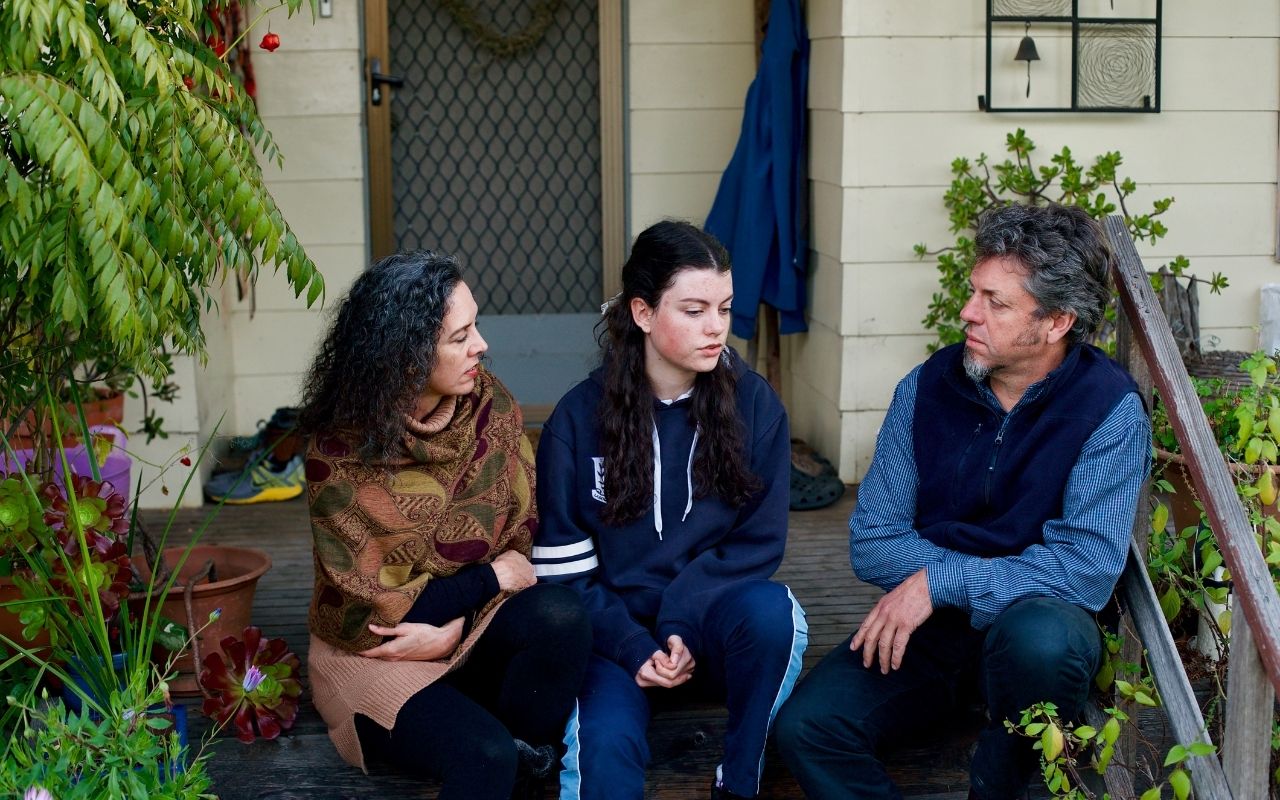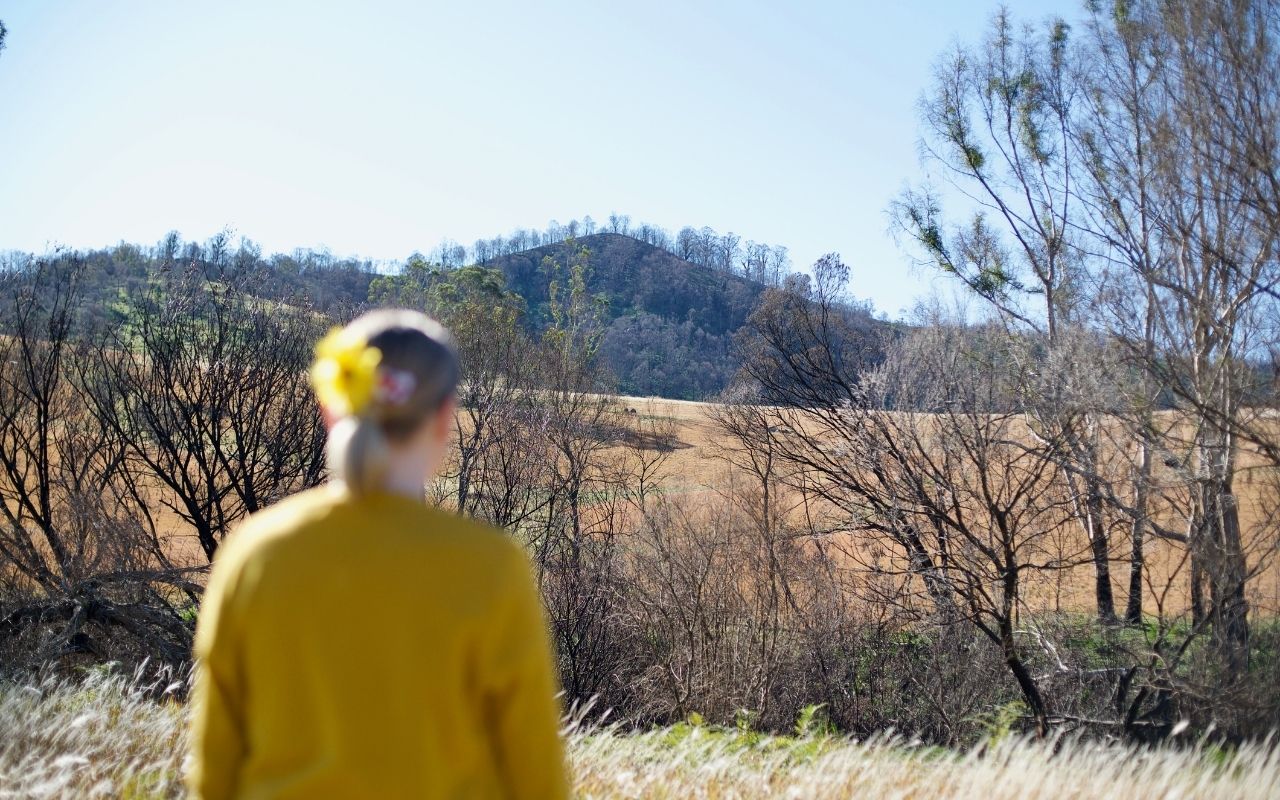The timing and durations of bushfire danger seasons vary across different regions in Australia. While the threat of bushfires can directly affect people living in high-risk areas, it’s also normal to have reactions if you live further away and are indirectly affected (e.g. by media exposure or hearing from others).
Taking positive action and anticipating your own and your young person’s emotional reactions during the bushfire season can be helpful for your wellbeing during and after this time.
Download our fact sheet on supporting your young person during the bushfire season
(PDF 426 kb)
Looking after yourself
Although you might feel like looking after yourself is not a priority, it is important to practise self-care. It can improve your ability to care for your young person going through a tough time. Talking to a trusted other, such as a family member, friend, Elder, or counsellor about any concerns and feelings you are having can be helpful. See our tips about self-care.
Modelling self-care and help-seeking behaviours can be particularly important during the bushfire season, because your young person might look to you to and be encouraged to also practise self-care.
Be aware of your own and your young person’s possible emotional reactions to the bushfire season
Coping with the bushfire season can be difficult for you and your young person. Some people might experience disruptions in different areas of their lives. Others may not feel impacted by the bushfire season and that’s OK too. Remember that there is no ‘right’ response and reactions can change over time.
You and your young person might experience the following reactions:
Experiencing a bushfire season can create high levels of stress and intense emotions that can change rapidly. These feelings might be due to the direct threat, reminders of past bushfires, or the indirect impact of the bushfires (e.g. via media or by hearing from others).
The current bushfire season can be a trigger for remembering previous bushfire experiences. Smells, sounds, or images can bring up feelings or sensations that are connected to past experiences. These responses can be overwhelming or confusing and make it difficult to focus on what is happening now.
Experiencing anxiety, worry and having concerns about safety is common during the bushfire season. This can include feeling ‘hyper-alert' even when there is no imminent risk. These feelings can interfere with everyday activities.
The bushfire season can be a busy time. Many people feel responsible for protecting and caring for others family members or friends and this sense of responsibility can be exacerbated during the bushfire season.
Some people prefer not to think about the bushfires or memories of previous bushfires. This might seem like a good strategy, but denying thoughts and feelings can affect people’s safety when a bushfire is approaching. Thoughts and feelings that are pushed away can catch people by surprise at a later time.
It is common to experience shock in the first few days after being directly or indirectly affected by a bushfire. Bushfires can be difficult to understand because the damage seems unfair. This can bring about feelings of helplessness, sadness, frustration, anger, and confusion.
Other tips to support your young person’s healthy headspace during the bushfire season
The following principles of Psychological First Aid (PFA) can help to guide you in supporting your young person at all times during the bushfire season:
Listen and look
- listen to questions and concerns
- be patient and understanding
- look at your young person's behaviour
Protect
- focus on the steps needed to maintain your and your person's physical and emotional safety, or to return to safety as soon as possible
- resources such as the Red Cross RediPlan can help you stay focused and prioritise actions
- keep your young person informed of next steps
Connect
- support your young person to feel connected to information, familiar people and places
- if you get separated during an emergency, reunite as soon as possible
During bushfire response and recovery, young people's experiences can be overlooked. Listening to young people is important because it helps them feel understood and can make them feel more in control. It can also help them to process their thoughts and feelings. Providing young people with reassurance and emotional support can help them feel more secure. Remember that you don't have to have all the answers. If you are unsure about how to answer a question, work with your young person to find out together.
To prepare for an emergency, discuss ways of how you and your young person could work together. This may help your young person feel proactive and more in control. This could include the steps to take in an emergency (e.g. what to take with them when evacuation is required; where to meet in case you get separated).
It is important to keep informed about the bushfire developments. This includes monitoring official warnings. It is also important to calmly communicate accurate information with your young person. At the same time, be aware that constant exposure to bushfire-focused news can exacerbate negative feelings. You and your young person may want to discuss ways to help them and your household access media safely (e.g. set limits for media use, manage automatic app alerts, or unfollow content or pages).
Keeping in contact with friends, family, and neighbours, especially during days with high risks for bushfires can help people feel more grounded. It can also help you and your young person draw on your strengths by getting connected with people who are reassuring and comforting.
You may also notice young people feel responsible for caring for other family members or friends. For instance, those young people who have younger siblings might feel responsible for the wellbeing of their siblings. Remember to regularly check in with all of your young people about their worries. Make sure to talk to your young people about whether they feel supported enough.
In times of heightened stress, practicing calming techniques can help with feeling grounded (e.g. taking slow and gentle breaths). You might want to encourage your young person to access apps or websites that help with feeling calm and maybe even practice the calming exercises together. Note that the use of alcohol and other drugs can be counterproductive.
When the danger has subsided, returning to old routines or establishing new routines is helpful. For your young person, this can include going back to school, university, TAFE, or their job, engaging in hobbies, and seeing friends. Encourage them to be involved in the activities that give a sense of purpose.
Alongside these tips, our 7 ways to support a young person’s healthy headspace can also help family and friends to support a young person by providing them with the tools to live their lives in a positive and meaningful way.
When should I get help?
It's normal for you or your young person to experience a variety of reactions to the bushfire season. This does not mean you or your young person will have ongoing problems. If you or your young person are noticing a significant impact on social or emotional functioning, or you’re not finding any improvement, it’s important to get professional help.
For immediate help contact triple zero (000) if it is an emergency
National 24/7 crisis services
Lifeline: 13 43 57 (13 HELP) or lifeline.org.au
Suicide Call Back Service: 1300 659 467 or suicidecallbackservice.org.au
beyondblue: 1300 224 636 or beyondblue.org.au
Additional youth support services
headspace: find your nearest centre or contact eheadspace
Kids Helpline: 1800 55 1800 or kidshelpline.com.au
ReachOut: reachout.com
SANE Australia: 1800 187 263 or sane.org
Further support
If you or your young person are in need of further support, you can talk to your General Practitioner (GP) about options for counselling.
The headspace Clinical Reference Group oversee and approve clinical resources made available on this website.
Last reviewed 16 November 2020
Get professional support
If you feel you need help there are a range of ways we can support you.


